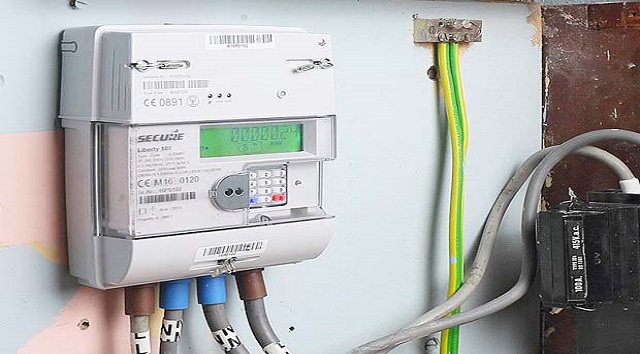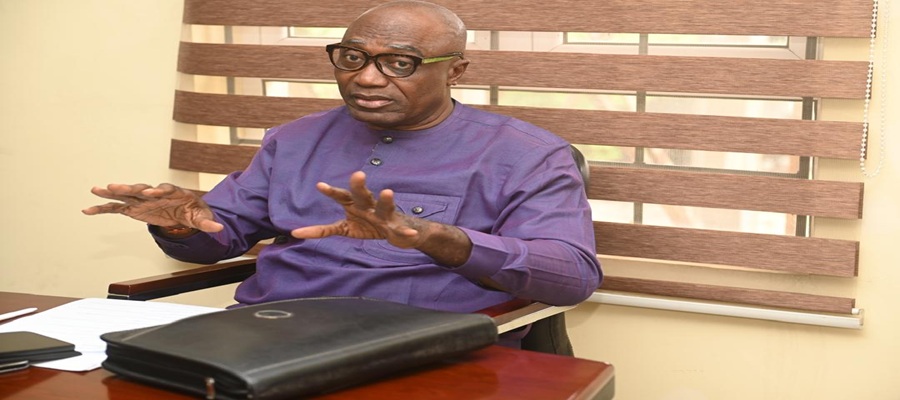General News
Mobile Industry Can Generate $565Bn by Unlocking Right 5G Spectrum – GSMA

Unlocking spectrum for the mobile industry to deliver innovative 5G services across different industry sectors could add $565 billion to global GDP and $152 billion in tax revenue from 2020 to 2034, according to a new report launched today by the GSMA.
Next-generation 5G services will improve access to healthcare, education and mobility whilst reducing pollution and increasing safety.
However, these outcomes rely on government support for the identification of sufficient millimetre wave (mmWave) spectrum for the mobile industry at the next ITU World Radiocommunication Conference in 2019 (WRC-19).
The report, “Socio-Economic Benefits of 5G Services Provided in mmWave Bands”, is the first to examine and quantify the impact of mmWave spectrum on the overall contribution of 5G networks to society. mmWave spectrum will carry the highest capacity 5G services.
It has the ideal characteristics to support very high data transfer rates and ultra-reliable, low latency capabilities, which will support new use cases and deliver the benefits of 5G to consumers and businesses around the world.
Brett Tarnutzer, Head of Spectrum, GSMA, said “The global mobile ecosystem knows how to make spectrum work to deliver a better future.
“Mobile operators have a history of maximising the impact of our spectrum resources and no one else has done more to transform spectrum allocations into services that are changing people’s lives.
“Planning spectrum is essential to enable the highest 5G performance and government backing for mmWave mobile spectrum at WRC-19 will unlock the greatest value from 5G deployments for their citizens.
“More than 5 billion people already rely on the mobile ecosystem to deliver services that are integral to their daily lives and fundamental to the economic sustainability of the communities they live in. 5G can offer more benefits and a whole new range of services to even more people, but this will not be possible without access to this vital spectrum.”
New Possibilities for Consumers and Industry
mmWave 5G will not only provide consumers with ultra-fast mobile broadband services including immersive entertainment, but will stimulate a host of applications that will enable citizens and businesses to do tomorrow what they can’t do today.
These innovations will include enhanced remote healthcare and education, industrial automation, virtual and augmented reality, and many others.
In healthcare, improved telemedicine including tactile internet capabilities, better preventative medicine using always-on remote sensors and wearables, and remote surgery and ‘smart’ instruments will only be made possible because of the speed and latency capabilities enabled by mmWave spectrum.
Next-generation robots, remote object manipulation (controlling machines with precision at distance), drones and other real-time control applications in digitised industrial centres are expected to increase efficiency, reduce costs and improve safety as well as lead to innovations in products and processes.
In autonomous transport, mmWave 5G will enable driverless vehicles to communicate with each other, the cloud and the physical environment continuously to create highly efficient public transport networks.
These and many other innovative use cases are expected to deliver 25 per cent of the overall value created by 5G in the future.
Global growth from mmWave
The early lead already being established in 5G in the Asia Pacific and Americas regions are expected to generate the greatest share of GDP attributed to mmWave 5G, at $212 billion and $190 billion respectively. Europe is forecast to have the highest percentage of GDP growth attributable to mmWave of any region, with 2.9 per cent.
However, the advantages are not restricted to early-adopting mobile markets and, as the rest of the world deploys 5G in subsequent years, economies of scale derived from spectrum harmonisation will stimulate even faster growth. Regions such as Sub-Saharan Africa, Central Asia and Latin America and the Caribbean could see growth in GDP contribution from mmWave 5G applications of over 65 per cent per year from 2026 until 2034.
“It is critical for governments to recognise the importance of the mmWave aspects of 5G when making decisions at the upcoming WRC-19.
“Making the right decisions now on spectrum will be vital to stimulating the rapid growth of economies, especially in developing markets, in the coming decade,” added the GSMA’s Brett Tarnutzer.
“mmWave spectrum has the capacity to support the innovative services expected from the highest performance of 5G, and only the mobile ecosystem has the technical expertise and track record in collaboration to deliver them at a price acceptable to consumers and businesses around the world.”
New mmWave bands for mobile are being discussed at WRC-19, and the GSMA recommends supporting the 26 GHz, 40 GHz and 66-71 GHz bands for mobile.
Global harmonisation of these bands at WRC-19 will create the greatest economies of scale and make broadband more affordable across the world.
Outside the WRC-19 process, 28 GHz is also emerging as an important mmWave band for realising the ultra-high-speed vision for 5G. Commercial services using this band have already been launched in the US and it will also be used for mmWave 5G in countries such as South Korea, Japan, India and Canada.
The report, “Socio-Economic Benefits of 5G Services Provided in mmWave Bands”, which includes details of 5G use cases, value and GDP contribution by sector and geography, can be found here.
The study was conducted by TMG, a consulting firm specialising in the information and communication technologies sector, on behalf of the GSMA.
General News
Indigenous Firm Deploys 400,000 Smart Electricity Meters in 2025

MOJEC International Limited has revealed that it deployed over 400,000 smart meters nationwide in 2025, representing a significant year-on-year growth for the indigenous smart meter manufacturer.

This performance reflected a 33.3 percent increase over the 300,000 meters deployed in 2024, highlighting the scale and acceleration of MOJEC’s metering operations.
Chantelle Abdul, group managing director, attributed the sustained impact to deliberate investments in infrastructure, people, and technology.
“MOJEC operates two state-of-the-art meter production facilities with a combined installed capacity of up to five million meters annually. This scale enables us not just to meet current demand, but to support Nigeria’s long-term metering and energy efficiency goals,” she said.
She further noted that MOJEC’s expansive installer ecosystem, comprising over 5,000 trained professionals nationwide, remains a critical enabler of its delivery advantage, ensuring speed, quality, and compliance across diverse terrains and markets.
The company stated that the deployment surge reflected growing confidence by Distribution Companies (DisCos) and sector stakeholders in MOJEC’s technical capacity, delivery speed, and end-to-end metering solutions.
According to Monday Ubogu, MOJEC’s head of installation, the scale and consistency of delivery set the company apart.
“Within the first three quarters of the year, MOJEC completed about 300,000 installations, accounting for roughly 40 percent of total installations nationwide during that period.
“The momentum continued into the final quarter with an additional 150,000 meters deployed, highlighting our operational depth and nationwide reach,” he said.
Ubogu added that MOJEC’s performance builds on decades of sector engagement, spanning key national metering initiatives including CAPMI, MAF, Vendor Financing, MAP Phases I & II, and NMMP 0, with the company having deployed nearly four million meters since the privatisation of NESI.
According to the company, a substantial portion of the deployment was driven by MOJEC Meter Asset Management Company (M3AC), the Group’s asset management subsidiary, which accounted for about 350,000 installations.
General News
Globacom Donates ₦1Bn to Lagos State Security Trust Fund

In its bid to contribute its quota to the consolidation of security in Nigeria’s commercial capital, Lagos, telecommunications giant, Globacom, has thrown its weight behind the Lagos State Security Trust Fund (LSSTF) with a donation of ₦1 billion.

The generous donation was announced at a Private Sector Breakfast Meeting with CEOs, convened at the instance of the Executive Governor of Lagos State, Mr Babajide Sanwo-Olu, on Friday, January 30, 2026 and shows the company’s commitment to fostering public safety which would in turn, culminate in enhanced prosperity and social re-engineering in the state.
The donation, which is the biggest private-sector intervention from the telecommunications sector to the Fund in recent years, again shows that Globacom is a responsible, responsive and people-oriented corporate citizen.
Globacom disclosed that the intervention emphasized deeper collaboration between government and the state’s business community especially in relation to security, innovation and economic resilience—an agenda which the digital solutions company has unabashedly supported through sustained social investments.
The Executive Secretary/CEO of the Fund, Dr. Ayo Ogunsan, in his display of appreciation described Globacom’s largesse as “a powerful demonstration of corporate citizenship and a strategic investment in the stability of Lagos State,” saying since LSSTF was established to bridge funding gaps in security infrastructure, it desired voluntary contributions from corporate bodies and well-meaning collaborators.
Dr. Ogunsan promised that the ₦1 billion donation will significantly enhance the Fund’s capacity to address critical priorities for 2026, including multipurpose security helicopters and drones, Armoured Personnel Carriers (APCs), water cannons, digital communication equipment and Smart CCTV systems. These assets, he added, were germane to proactive policing, rapid response and intelligence-led operations across the state.
He therefore encouraged Lagosians to support businesses that invest in the safety and development of the state, saying, “When companies step forward to secure our environment, residents should reciprocate by patronizing them. Their support directly impacts the protection of lives, property and economic activity.”
A statement from Globacom explained that the donation was an expression of the company’s staunch belief in Nigeria’s future. “At Globacom, we see security not as a government burden alone, but as a shared responsibility. When people feel safe, enterprise grows, creativity flourishes and hope becomes practical. Our support for the LSSTF is about protecting the everyday dreams of millions of Lagosians,” he noted.
With this donation to the LSSTF, Globacom has furthered its tradition of investing directly in the conditions like safety, confidence and stability which help commerce to thrive. Consequent on the support, LSSTF is gingered to raise the bar of security thereby concretizing Lagos State’s position as Nigeria’s safest and most vibrant commercial hub.
This recent financial intervention from Globacom is in tandem with its avowed commitment to social responsibility that is practical, timely, scalable and aligned with national priorities.
The company’s interventions in the past decades have spanned relief efforts for flood-affected communities, support for displaced persons, advanced youth skills through structured training programmes, and investments in education, culture and digital inclusion.
General News
WIEG to host Nigeria’s first International Investment Summit in Lagos

World International Economic Group (WIEG) Nigeria has announced plans to host its inaugural International Investment Summit on Feb. 25 and 26 at the Four Points by Sheraton Hotel, Oniru, Victoria Island, Lagos.

WIEG
The summit, themed “Nigeria’s Next Frontier: Unlocking Sustainable Investments for Economic Transformation,” is aimed at connecting investment-ready Nigerian enterprises with global capital while addressing long-standing challenges facing micro, small and medium enterprises (MSMEs), cooperatives and women-led businesses.
Speaking at a pre-summit press conference on Friday at Compact Communications Ltd., GRA Ikeja, Lagos, Mr. Bassey Essien, WIEG’s Project & Event Consultant said the summit would serve as a structured platform linking policy, finance and enterprise growth.
Essien identified limited access to structured funding, poor investment readiness and weak documentation as major barriers confronting Nigerian businesses, despite the availability of domestic and international capital.
“Enterprises that succeed understand the importance of preparation. Some invest as much as N200 million in professional feasibility studies to meet the standards of banks and institutions such as the African Development Bank. That level of preparation enables access to collateral-free funding,” he said.
According to him, weak policy continuity, inadequate post-intervention monitoring and fragmented regulatory frameworks have continued to undermine business growth in the country.
“Policies often change with governments, and there is little tracking after interventions. More importantly, many businesses are not prepared in ways financiers require,” Essien noted.
He explained that the summit would convene policymakers, investors, development finance institutions and pre-screened MSMEs and SMEs operating in priority sectors, including the creative industry, agriculture, energy transition, finance and aviation.
Essien described the creative sector as a major contributor to Nigeria’s economy, accounting for about 2.5 per cent of the Gross Domestic Product, but said weak financing structures, piracy and poor intellectual property (IP) protection had limited its growth.
Highlighting the summit programme, he said Day One would feature conferences on macroeconomic issues, policy reforms and enterprise growth, while Day Two would focus on sector-specific deal-making roundtables.
“These deal rooms will be organised by sector — from aviation maintenance, repair and overhaul (MRO) to renewable energy — with lawyers, financiers and policymakers present to fast-track transactions,” he said.
Essien added that the Nigerian Investment Promotion Commission (NIPC) would be present to ensure post-event monitoring and tracking of investment deals concluded during the summit.
He disclosed that the creative economy segment would be supported through partnerships with the Association of Movie Producers of Nigeria (AMP) and financial institutions to fund viable projects in Nollywood, music and fashion.
“Intellectual property regularisation is critical. Once ideas are properly documented and protected, investors gain confidence,” he said.
On energy and aviation, Essien said the summit would spotlight renewable energy solutions to reduce dependence on generators and promote the establishment of commercial MRO facilities to curb the high cost of aircraft maintenance abroad.
He also announced the participation of B Lab Africa, a U.S.-certified organisation focused on environmental, social and governance (ESG), diversity, equity and inclusivity standards, noting that the initiative would help small businesses improve governance and access global funding.
Essien revealed that investment commitments estimated at about 500 million dollars were expected to emerge from the summit.
“This is a private-sector-led, non-partisan initiative that places no financial burden on government. It is focused on job creation, empowering women-owned enterprises and improving investor confidence through transparent and secure processes,” he said.
He urged Nigerian entrepreneurs and SMEs to prioritise proper documentation, professional advisory services and IP protection to position themselves for sustainable growth.
“We are creating a structured pathway from policy to capital to enterprise growth,” Essien added.

 General News2 days ago
General News2 days agoGlobacom Donates ₦1Bn to Lagos State Security Trust Fund

 Telecom2 days ago
Telecom2 days agoAirtel Nigeria Commits to Upgrade of its Network Infrastructure for Improved Quality of Service

 E-Business2 days ago
E-Business2 days agoPwC Reveals AI Scaling Gap Slows Africa’s Digital Transformation

 News2 days ago
News2 days agoCIoD, NIPSS Partner to Deepen Governance, Leadership Standards

 News2 days ago
News2 days agoNRS Chairman Outlines Ways Nigeria can Move from Potential to Economic Prosperity

 E-Financial2 days ago
E-Financial2 days agoEcobank Profit Jumps 29 Percent to N950Bn

 General News2 days ago
General News2 days agoWIEG to host Nigeria’s first International Investment Summit in Lagos

 News2 days ago
News2 days agoOrya, Ex-NEXIM MD Jailed 490 Years for N2.4Bn Fraud



























